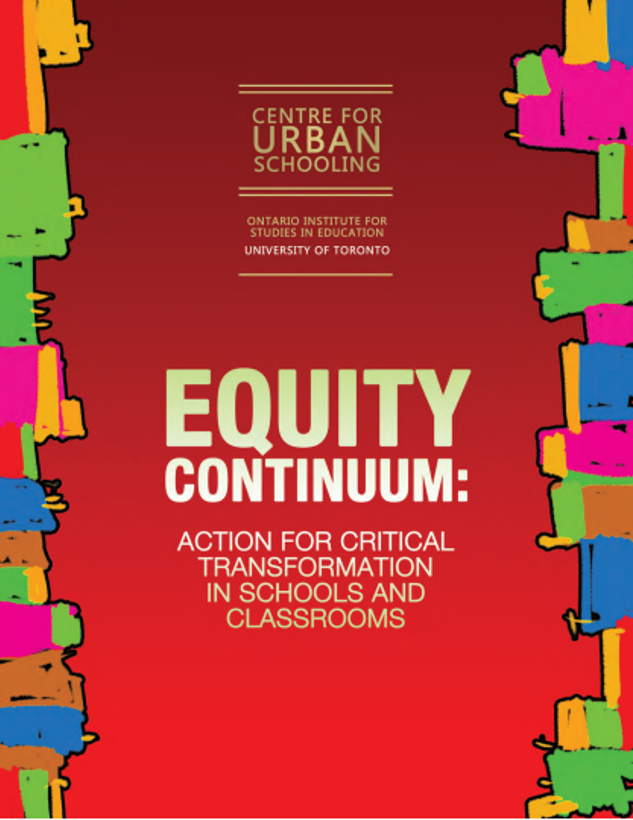Where We Began
At Marc Garneau C.I., staff have heard from students that they want to explore more deeply, topics that connect to their histories, identities and lived experiences. In response, staff have been engaging in professional learning about anti-racism and anti-oppression by asking “What do we need to learn and what do we need to learn to DO to better support the students we serve?”
Instrumental in all of the equity work at MGCI is the Equity Committee, an active and committed group of educators, supported by Equity, Anti-Racism and Anti-Oppression coaches jamie berrigan and Reshma Somani, who through ongoing co-learning, community building and collaboration, are building capacity to lead school improvement with a focus on strengthening conditions for student achievement and well-being.

Staff used the “Equity Continuum: Action for Critical Transformation in Schools and Classrooms,” adapting the look-fors for Marc Garneau to assess where each curriculum department is in their practice and where educators wish to build their knowledge, understanding, and skills in anti-racist education.
Through this school wide reflection, the Equity Committee identified four indicators and look-fors that would guide staff learning; Identities & Inclusion; Social Justice & Criticality; Student Voice; Safe Spaces & Belonging.
Where We Are
Once department goals tied to indicators were identified, more focused learning began. The anti-racist professional learning has been wide and layered, with the administration engaging in deepening knowledge about how to identify barriers embedded in school systems and processes, teacher leaders of departments having specific learning about how to build upon equity leadership competencies, and for all educators, focusing on how we shift our practices to best serve students and notice, name, and challenge racist and oppressive practices.
Throughout the professional learning, we have been asking how we know we are meeting our goals. Just as educators are assessing students’ learning, we need to be assessing adults' learning. How do we know we are reaching students and having an impact?
Where We Are Going
As we move forward, educators will engage in co-planning lessons and learning experiences for students, ensuring that student input and feedback is embedded in our on-going process of learning and reflection. We will be engaging students and community members to ensure their concerns, questions, and ideas directly influence our continued actions in the new school year.